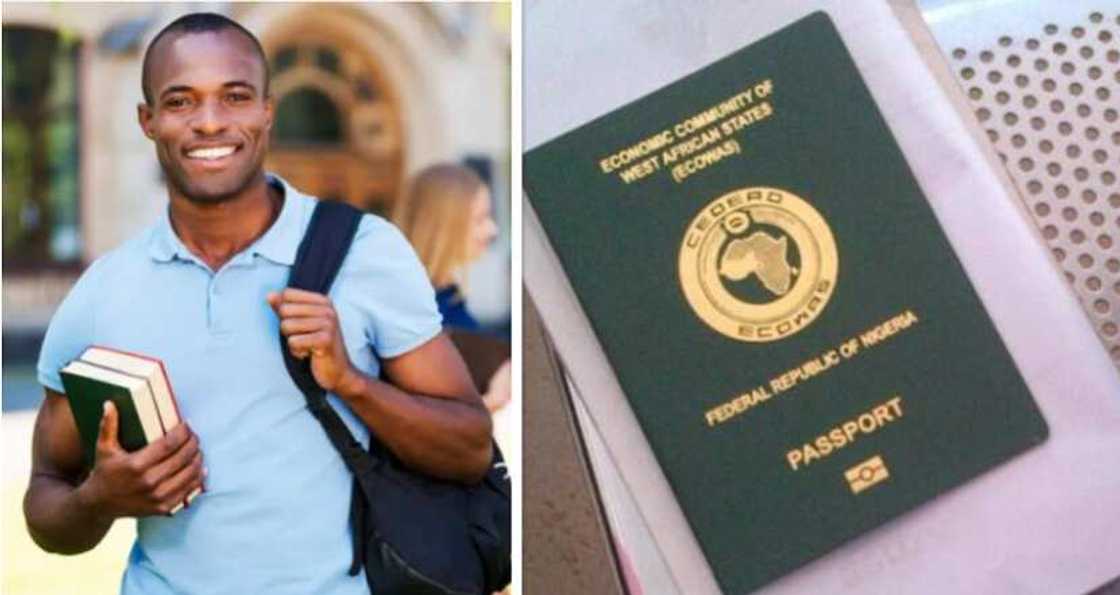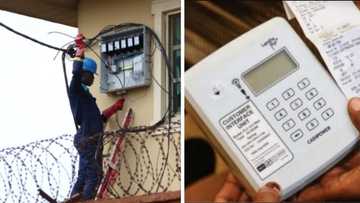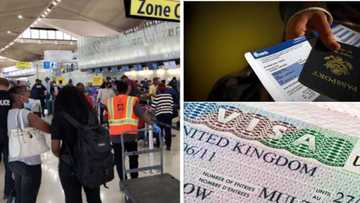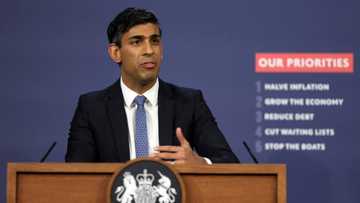Nigerians to Pay More as UK Government Increases Cost of Work, Study, Visit Visas
- The UK government has made an upward review of the cost of some of its visas
- Migrants coming into the UK will have to pay more for some of the under listed charges
- The government said the adjustments were made to address high inflation and broader economic pressures on the healthcare system
Unlock the best of Legit.ng on Pinterest! Subscribe now and get your daily inspiration!
The Government of the United Kingdom has announced plans to raise study visas by 15%, going up from £363 to £417, while work visas lasting over three years will see a 20% hike, rising from £1,235 to £1,482.
Additionally, the annual cost of the state-funded National Health Service (NHS) will rise from £624 to £1,035.
The announcement is coming just a day after UK Prime Minister Rishi Sunak unveiled proposals to substantially raise visa application fees.

Source: UGC
According to TheCable, John Glen, the chief secretary to the UK Treasury, announced that the fees for visit visas, work visas, post-study work (PSW) visas will increase.
PAY ATTENTION: Join Legit.ng Telegram channel! Never miss important updates!
Likewise, he mentioned that the expenses for study visas, certificate of sponsorship (COS), indefinite leave to remain (ILR), settlement status, and various other categories will undergo an increase in cost.
Glen emphasized that the decision was made to address the impact of high inflation and broader economic pressures on the healthcare system, aiming to ensure that it adequately covers the complete healthcare expenses of those who bear the cost.
Under our plans, the main rate will increase to £1,035, and the discounted rate for students and underage teens will increase to £776.
Glen further noted that there will be a substantial increase in fees for priority visa applications as well. The surcharge hike will assist in financing the salary increase for doctors.
Simultaneously, fees will be raised across various immigration and nationality pathways, encompassing individuals arriving to live, work, and study, especially during a period of historically high immigration figures.
Specifically, this means increasing the cost of work visas and visit visas by 15 percent and increasing the cost of study visas, COS, settlement, citizenship, wider entry clearance and ILR visas and priority visas by at least 20 percent.
We’re also equalising cost for students and for those using a priority service so people pay the same whether they apply from within the UK or from outside the UK.
According to Glen, this measure will contribute to covering a larger portion of migration and border system costs, thereby enabling the Home Secretary to allocate additional funding towards police forces and support the implementation of a pay increase for the police.
Earlier in the year, the UK government issued an updated work visa specifically aimed at teachers, with a particular focus on countries such as Nigeria, Ghana, and other developing economies.
UK plans new visa rules for Nigeria as 10 students bring at Least 9 dependants
In related news, Legit.ng reported that the United Kingdom is contemplating stricter regulations concerning the number of relatives that migrants can bring into the country.
Nigeria was specifically mentioned due to the discovery that it has the highest count of dependents compared to other migrant groups.
As reported by the Daily Mail, out of 34,000 Nigerians granted visas in a 12-month period, a total of 31,898 dependents accompanied them.
This indicates that for every 100 students in the UK, there are approximately 93 dependents.
A similar ratio was observed for work visas, with 8,972 Nigerians being issued such visas in the 12 months leading up to June, along with 8,576 dependents accompanying them.
Source: Legit.ng





